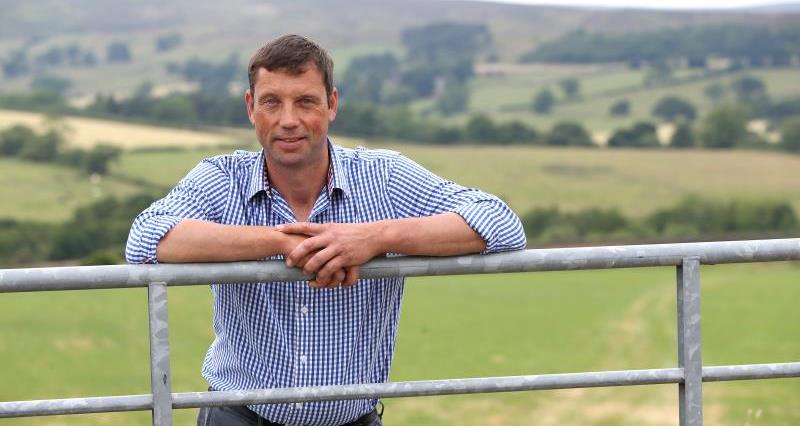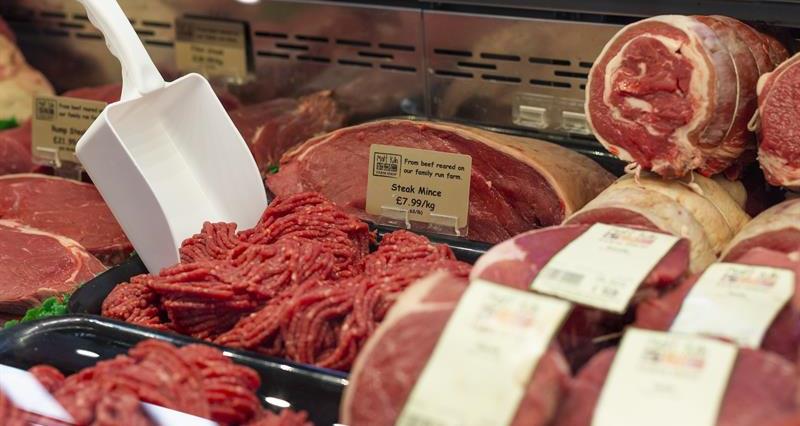The NFU worked closely with WRAP to develop the ‘Meat in a Net Zero World’ initiative, launched in June 2020, and along with other trade bodies, major retailers, meat processors, hospitality and food service companies, signed up to the programme and pledged to work together to reduce waste, improve productivity and cut emissions.
At the time of launching, WRAP estimated that more than 380,000 tonnes of meat, worth £3 billion, was wasted each year from production through to the consumer, measuring more than 4 million tonnes in CO2 equivalents. The inital report stated this waste must be prevented if we are to contribute to the UK’s target of a net zero economy by 2050, as well as the NFU’s net zero vision and other industry initiatives.
Since then, WRAP's progress report found that:
- 60% of business supporters have set net zero or science-based GHG reduction targets across the whole supply chain, including agricultural emissions.
- Retailers and processors have reported a significant and increasing amount of R&D activity being focused in priority areas, such as feed innovations.
- Meat processors reported a collective reduction in food waste of more than 20,000 tonnes – an average 30% reduction.
- All businesses set a GHG reduction target and reported year-on-year improvements – up to 30% reduction in emissions intensity over the last year.
- All processors reported having water efficiency targets and year-on-year improvements –up to 15% reduction in intensity of water use.
However, the report also found that, as Covid restrictions eased, households food waste appears to be increasing.
Karen Fisher, Head of Climate Action Strategy at WRAP, said: “Whilst the call to eat less meat is widely acknowledged, we recognise that there is still a role for meat produced to high welfare, climate and environmental standards in our diet. It is, therefore, critical that the industry works together towards these aims.
"Against the backdrop of the unprecedented challenges that the Covid crisis has presented, the industry has taken some important steps forward. The momentum is building, the need for change is widely recognised and this is reflected in the number of new businesses and wider organisations joining this commitment – including more representatives from the hospitality & food service sector and the feed industry, amongst others.”

NFU livestock board chairman Richard Findlay said: “This collaboration is proving to play an important role in supporting the NFU’s vision of net zero agriculture by 2040 and British livestock farmers are keen to do even more.
“When it comes to primary production, having a shared goal and strategy is helping to make sure all livestock farmers are moving in the right direction.
“It is clear that great strides are being taken throughout the meat supply chain to reduce our collective carbon footprint, and it is important that we continue to consider every part of the supply chain to maximise reductions. This includes opportunities to reduce waste at home and in the food service sector, which is going to be crucial if we are to reach our national net zero goal.”
The organisations which are part of the ‘Meat in a Net Zero World’ initiative alongside the NFU include:
- 2 Sisters Food Group
- ABP UK
- Agriculture and Horticulture Development Board
- Aldi
- ASDA
- Avara Foods
- Becketts Foods Ltd
- British Meat Processors Association
- British Poultry Council
- British Retail Consortium
- Castell Howell Foods
- Co-op
- Cranswick
- Dawn Meats Group/Dunbia
- Direct Table Foods
- Dovecote Park
- Fairfax Meadow
- Foyle Food Group
- Hilton Food Group
- Hybu Cig Cymru
- Iceland Foods
- Karro Food Group
- Kepak Group
- Lidl
- Wm Morrison plc
- Moy Park
- M&S
- Nando’s
- National Pig Association
- Red Tractor Assurance
- Sainsbury’s
- Sustainable Restaurant Association
- Tesco
- Tulip Ltd
- Quality Meat Scotland
- Waitrose
- Zero Waste Scotland
